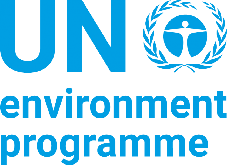When animals and insects pick up the pollen of flowers and spread it, they allow plants, including many food crops, to reproduce. Birds, rodents, monkeys and even people pollinate, but the most common pollinators are insects, and among them, bees.
Pollinators contribute directly to food security. Nearly three quarters of the plants that produce 90 per cent of the world’s food require this external help. And according to bee experts at the Food and Agriculture Organization of the United Nations, a third of the world’s food production depends on bees.
Bees are renowned for their role in providing high-quality food—honey, royal jelly and pollen—and other products such as beeswax, propolis and honey bee venom. They are also part of the biodiversity on which we all depend for our survival. “Sacred passages about bees in all the worlds’ major religions highlight their significance to human societies over millennia,” says a May 2019 report by the Intergovernmental Science-Policy Platform on Biodiversity and Ecosystem Services (IPBES).
Beekeeping provides an important source of income for many rural livelihoods.

“The western honey bee is the most widespread managed pollinator in the world, and globally there are about 81 million hives producing an estimated 1.6 million tonnes of honey annually,” says the report.
However, while the vast majority of pollinator species are wild, including more than 20,000 species of bees, the mass breeding and large-scale transport of pollinators can pose risks for the transmission of pathogens and parasites. The risk of unintended harm could be decreased by better regulation of their trade and use, the report continues.
Bees at risk from air pollution and pesticides
Bees and other pollinators, such as butterflies, bats and hummingbirds, are increasingly under threat from human activities. The Intergovernmental Science-Policy Platform on Biodiversity and Ecosystem Services report lists “land use change, intensive agricultural management and pesticide use, environmental pollution, invasive alien species, pathogens and climate change”, as major threats to the abundance, diversity and health of pollinators. .
In May 2018, the European Union upheld a partial ban on three insecticides known as neonicotinoids to mitigate the lethal threat they pose to bees and their trickle-down effect on pollination as a whole.
Air pollution is also thought to be affecting bees. Preliminary research shows that air pollutants interact with scent molecules released by plants which bees need to locate food. The mixed signals interfere with the bees ability to forage, making them slower and less effective at pollination.
“Increasing crop and regional farm diversity as well as targeted habitat conservation, management or restoration, is one way of combating climate change and promoting biodiversity,” says UN Environment biodiversity specialist Marieta Sakalian. “Governments need to take the lead.”
It is precisely to encourage governments, organizations, civil society and concerned citizens to protect pollinators and their habitats, that the United Nations has declared 20 May World Bee Day.
In its second edition, World Bee Day raises awareness of the essential role bees and other pollinators play in keeping people and the planet healthy. The date coincides with the birthday of Anton Janša, who in the 18th century pioneered modern beekeeping techniques in his native Slovenia and praised the bees for their ability to work so hard, while needing so little attention.

For further information please contact Marieta Sakalian
This World Bee Day, join the conversation on #WorldBeeDay, and do your part to #Savethebees
Here are some actions you can take to help preserve bees and other pollinators:
- Plant nectar-bearing flowers such as marigolds or sunflowers for decorative purposes on balconies, terraces, and gardens
- Buy honey and other hive products from your nearest local beekeeper
- Raise awareness among children and adolescents on the importance of bees and express your support for beekeepers
- Set up a pollinator farm on your balcony, terrace, or garden
- Preserve old meadows, which feature a more diverse array of flowers, and sow nectar-bearing plants
- Cut grass on meadows only after the nectar-bearing plants have finished blooming
- Use pesticides that do not harm bees, and spray them in windless weather, either early in the morning or late at night, when bees withdraw from blossoms
Air pollution is the theme for World Environment Day on 5 June 2019. The quality of the air we breathe depends on the lifestyle choices we make every day. Learn more about how air pollution affects you, and what is being done to clean the air. What are you doing to reduce your emissions footprint and #BeatAirPollution?
The 2019 World Environment Day is hosted by China.
